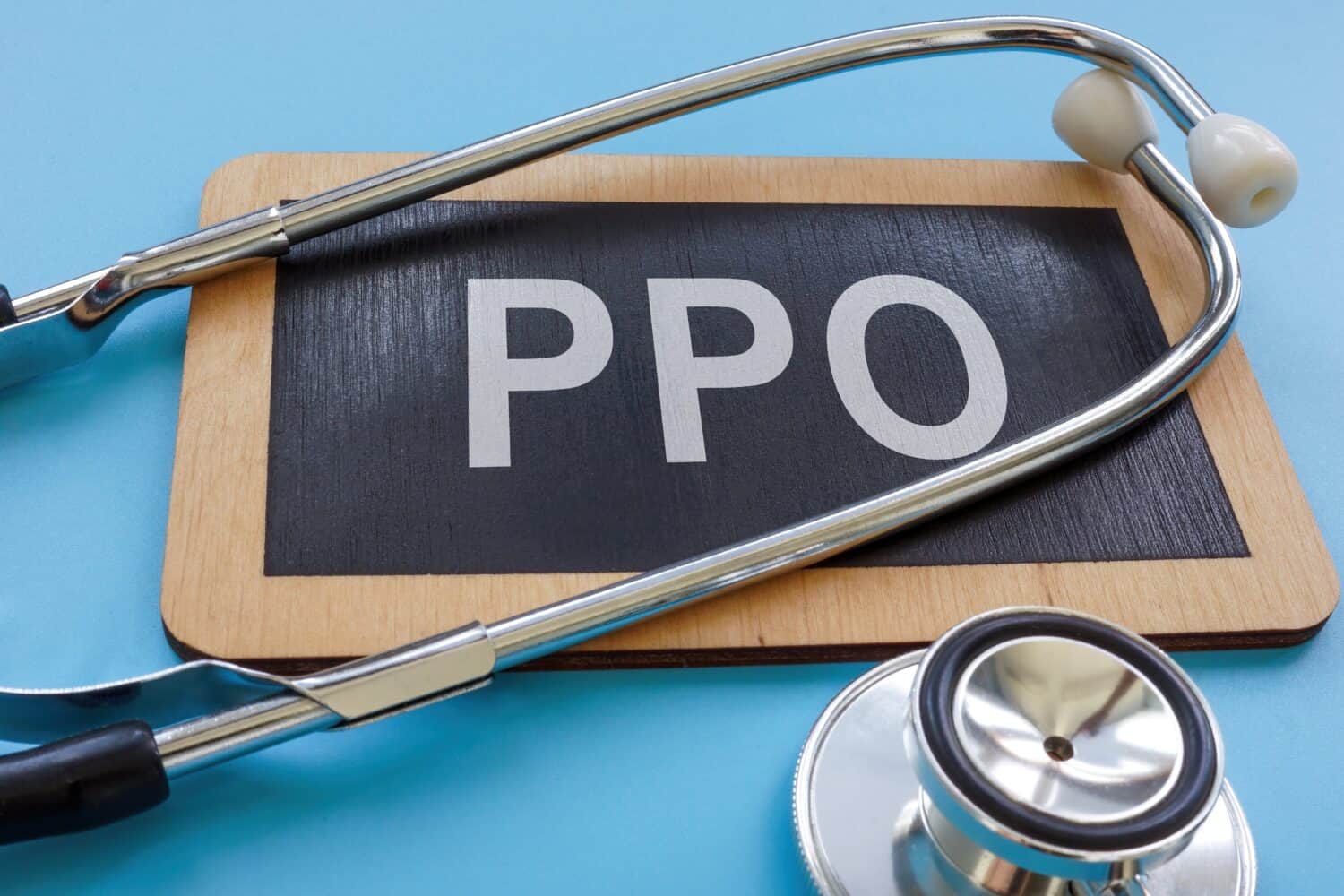
A health savings account (HSA) is a tax-advantaged savings vehicle that allows you to sock away money to cover qualified healthcare costs. To open an HSA, you’d need to pair it with a high-deductible health plan (HDHP).
A preferred provider organization (PPO) is itself a type of health insurance plan that’s known for having lower deductibles than HDHPs, but higher premiums.
Most people with PPO’s aren’t eligible to open HSAs.
So you may be wondering if you should opt for an HDHP with an HSA or a stand-alone PPO. So let’s cover some of the basics.
HSA with HDHP

Many financial experts consider HSAs to be some of the most tax-advantaged accounts of their kind. In fact, HSAs offer a triple-tax benefit.
- Contributions are tax deductible
- HSA funds grow tax-free with compound interest
- Withdraws to cover qualified healthcare costs are tax-free
When you open an HSA, you can contribute to an interest-bearing account. But many providers such as brokerage firms also allow you to invest your HSA dollars in growth-seeking investments such as stocks, mutual funds and exchange-traded funds (ETFs). This can help you invest your HSA for retirement healthcare costs.
Plus, HSA eligible expenses cover a wide range of medical, dental, and prescription expenses including the following.
- Ambulance services
- Braces
- Chiropractors
- Co-insurance (medical, dental or vision)
- Co-payments
- Deductibles
- Flu shots
- Prescription drugs
- Sleep aids and sedatives
- Contact lenses
- Examinations and glasses
- Laser eye surgery
- X-rays
However, you’d need to have an HDHP to open an HSA. In 2024, these are plans that have a minimum deductible of $1,600 or more for individual coverage or $3,200 for family coverage.
The deductible is the out-of-pocket amount you need to pay for eligible healthcare before your health insurance kicks in. Therefore, HDHPs may not be a good fit for those with chronic illnesses or people who visit the doctor often.
HDHPs may be more suitable for those who are in optimum health, don’t visit the doctor often, and have enough savings to cover a high deductible in the event of an unexpected medical emergency.
What’s a PPO?

A PPO is a medical health insurance plan that provides access to a network of healthcare providers and specialists.
Although you likely won’t be able to pair your PPO with an HSA, this plan may be best for those who require frequent medical treatment. The lower deductibles would allow your insurance coverage to go into effect after you make smaller out-of-pocket payments.
The trade-off, however, is your premiums would generally be higher than those for HDHPs. You’d also typically be looking at higher out-of-pocket maximums and a smaller provider network. If you travel frequently, this could be an issue as you’d be on the hook for a large medical bill that’s rung up in a place outside your network.
But a PPO may ultimately suit you if you’re generally bound to one region, expect frequent medical attention, and can afford higher premiums.
HDHP and HSA vs. PPO: Which should I choose?

The answer to the type of coverage that may benefit you most may come down to your financial situation and how often you expect to need medical care. If you don’t see doctors often and are in generally good health, you may be well off with an HDHP. It can mean lower monthly payments for your insurance and the accessibility to an HSA.
But if you visit the doctor often or are chronically ill, you may be better suited by a PPO which would require you to pay lower deductibles before benefiting from your insurance coverage.
To recap, here are some key points to consider when deciding between an HDHP with an HSA or a stand-alone PPO.
| HDHP | PPO |
| Higher deductibles | Lower deductibles |
| Smaller premiums | Larger premiums |
| HSA eligible | Non-HSA eligible |
Why we covered this

An HSA and PPO are two different types of entities. An HSA is a savings and investing account designed to help you stack up money for qualified medical expenses. A PPO is a type of medical insurance plan that gives you access to a network of healthcare providers. But in order to get an HSA, you need an HDHP medical insurance plan. So you may be wondering if you should get an HDHP with an HSA or just a PPO. We produced this guide to help make that decision easier.
100 Million Americans Are Missing This Crucial Retirement Tool
The thought of burdening your family with a financial disaster is most Americans’ nightmare. However, recent studies show that over 100 million Americans still don’t have proper life insurance in the event they pass away.
Life insurance can bring peace of mind – ensuring your loved ones are safeguarded against unforeseen expenses and debts. With premiums often lower than expected and a variety of plans tailored to different life stages and health conditions, securing a policy is more accessible than ever.
A quick, no-obligation quote can provide valuable insight into what’s available and what might best suit your family’s needs. Life insurance is a simple step you can take today to help secure peace of mind for your loved ones tomorrow.
Click here to learn how to get a quote in just a few minutes.
Thank you for reading! Have some feedback for us?
Contact the 24/7 Wall St. editorial team.





